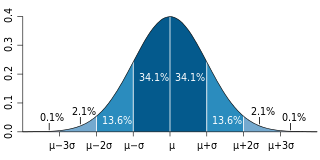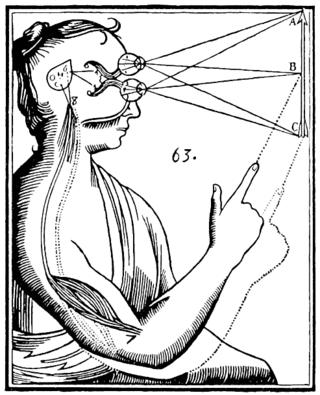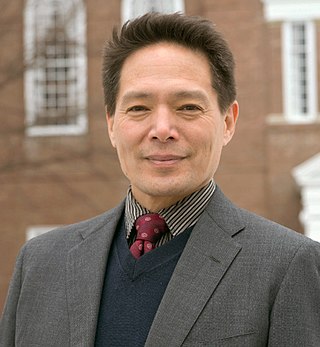Epiphenomenalism is a position on the mind–body problem which holds that physical and biochemical events within the human body are the sole cause of mental events. According to this view, subjective mental events are completely dependent for their existence on corresponding physical and biochemical events within the human body, yet themselves have no influence over physical events. The appearance that subjective mental states influence physical events is merely an illusion. For instance, fear seems to make the heart beat faster, but according to epiphenomenalism the biochemical secretions of the brain and nervous system —not the experience of fear—is what raises the heartbeat. Because mental events are a kind of overflow that cannot cause anything physical, yet have non-physical properties, epiphenomenalism is viewed as a form of property dualism.

Free will is the notional capacity or ability to choose between different possible courses of action unimpeded.

Determinism is the philosophical view that events are completely determined by previously existing causes. Deterministic theories throughout the history of philosophy have developed from diverse and sometimes overlapping motives and considerations. Like eternalism, determinism focuses on particular events rather than the future as a concept. The opposite of determinism is indeterminism, or the view that events are not deterministically caused but rather occur due to chance. Determinism is often contrasted with free will, although some philosophers claim that the two are compatible.

The term incompatibilism was coined in the 1960s, most likely by philosopher Keith Lehrer, to name the view that the thesis of determinism is logically incompatible with the classical thesis of free will. The term compatibilism was coined to name the view that the classical free will thesis is logically compatible with determinism, i.e. it is possible for an ordinary human to exercise free will even in a universe at which determinism is true. These terms were originally coined for use within a research paradigm that was dominant among academics during the so-called "classical period" from the 1960s to 1980s, or what has been called the "classical analytic paradigm". Within the classical analytic paradigm, the problem of free will and determinism was understood as a Compatibility Question: "Is it possible for an ordinary human to exercise free will when determinism is true?" Those working in the classical analytic paradigm who answered "no" were incompatibilists in the original, classical-analytic sense of the term, now commonly called classical incompatibilists; they proposed that determinism precludes free will because it precludes our ability to do otherwise. Those who answered "yes" were compatibilists in the original sense of the term, now commonly called classical compatibilists. Given that classical free will theorists agreed that it is at least metaphysically possible for an ordinary human to exercise free will, all classical compatibilists accepted a compossibilist account of free will and all classical incompatibilists accepted a libertarian account of free will.
Fatalism is a family of related philosophical doctrines that stress the subjugation of all events or actions to fate or destiny, and is commonly associated with the consequent attitude of resignation in the face of future events which are thought to be inevitable.
Compatibilism is the belief that free will and determinism are mutually compatible and that it is possible to believe in both without being logically inconsistent.
Classical Pantheism, as defined by Charles Hartshorne in 1953, is the theological deterministic philosophies of pantheists such as Baruch Spinoza and the Stoics. Hartshorne sought to distinguish panentheism, which rejects determinism, from deterministic pantheism.
Naturalistic pantheism, also known as scientific pantheism, is a form of pantheism. It has been used in various ways such as to relate God or divinity with concrete things, determinism, or the substance of the universe. God, from these perspectives, is seen as the aggregate of all unified natural phenomena. The phrase has often been associated with the philosophy of Baruch Spinoza, although academics differ on how it is used. Natural pantheists don’t believe in any God, though they do worship the universe as if it was one. They believe in science, hence the name scientific pantheist, instead of a deity.
Indeterminism is the idea that events are not caused, or are not caused deterministically.

Libertarianism is one of the main philosophical positions related to the problems of free will and determinism which are part of the larger domain of metaphysics. In particular, libertarianism is an incompatibilist position which argues that free will is logically incompatible with a deterministic universe. Libertarianism states that since agents have free will, determinism must be false and vice versa.
Predeterminism is the philosophy that all events of history, past, present and future, have been already decided or are already known, including human actions.
In the philosophy of mind, psychophysical parallelism is the theory that mental and bodily events are perfectly coordinated, without any causal interaction between them. As such, it affirms the correlation of mental and bodily events, but denies a direct cause and effect relation between mind and body. This coordination of mental and bodily events has been postulated to occur either in advance by means of God or at the time of the event or, finally, according to Baruch Spinoza's Ethics, mind and matter are two of infinite attributes of the only Substance-God, which go as one without interacting with each other. On this view, mental and bodily phenomena are independent yet inseparable, like two sides of a coin.
Theological determinism is a form of predeterminism which states that all events that happen are pre-ordained, and/or predestined to happen, by one or more divine beings, or that they are destined to occur given the divine beings' omniscience. Theological determinism exists in a number of religions, including Jainism, Judaism, Christianity, and Islam. It is also supported by proponents of Classical pantheism such as the Stoics and by philosophers such as Baruch Spinoza.
In philosophy, moral responsibility is the status of morally deserving praise, blame, reward, or punishment for an act or omission in accordance with one's moral obligations. Deciding what counts as "morally obligatory" is a principal concern of ethics.
Physical causal closure is a metaphysical theory about the nature of causation in the physical realm with significant ramifications in the study of metaphysics and the mind. In a strongly stated version, physical causal closure says that "all physical states have pure physical causes" — Jaegwon Kim, or that "physical effects have only physical causes" — Agustin Vincente, p. 150.

The mind–body problem is a philosophical problem concerning the relationship between thought and consciousness in the human mind, and the body.
Metaphysics is the branch of philosophy that investigates principles of reality transcending those of any particular science. Cosmology and ontology are traditional branches of metaphysics. It is concerned with explaining the fundamental nature of being and the world. Someone who studies metaphysics can be called either a "metaphysician" or a "metaphysicist".
Interactionism or interactionist dualism is the theory in the philosophy of mind which holds that matter and mind are two distinct and independent substances that exert causal effects on one another. An example of your mind influencing your body would be if you are depressed, you can observe the effects on your body, such as a slouched posture, a lackluster smile, etc. Another example, this time of your body affecting your mind would be: If you struck your toe very forcefully on a door, you would experience terrible pain. Interactionism is one type of dualism, traditionally a type of substance dualism though more recently also sometimes a form of property dualism. Many philosophers and scientists have responded to this theory with arguments both supporting and opposing its relevance to life and whether the theory corresponds to reality.
Free will in antiquity is a philosophical and theological concept. Free will in antiquity was not discussed in the same terms as used in the modern free will debates, but historians of the problem have speculated who exactly was first to take positions as determinist, libertarian, and compatibilist in antiquity. There is wide agreement that these views were essentially fully formed over 2000 years ago. Candidates for the first thinkers to form these views, as well as the idea of a non-physical "agent-causal" libertarianism, include Democritus, Aristotle, Epicurus, Chrysippus, and Carneades.

Peter Ulric Tse is an American cognitive neuroscientist in the Department of Psychological and Brain Sciences, Dartmouth College. He directs the NSF EPSCoR Attention Consortium. He was awarded a Guggenheim Fellowship in 2014.







